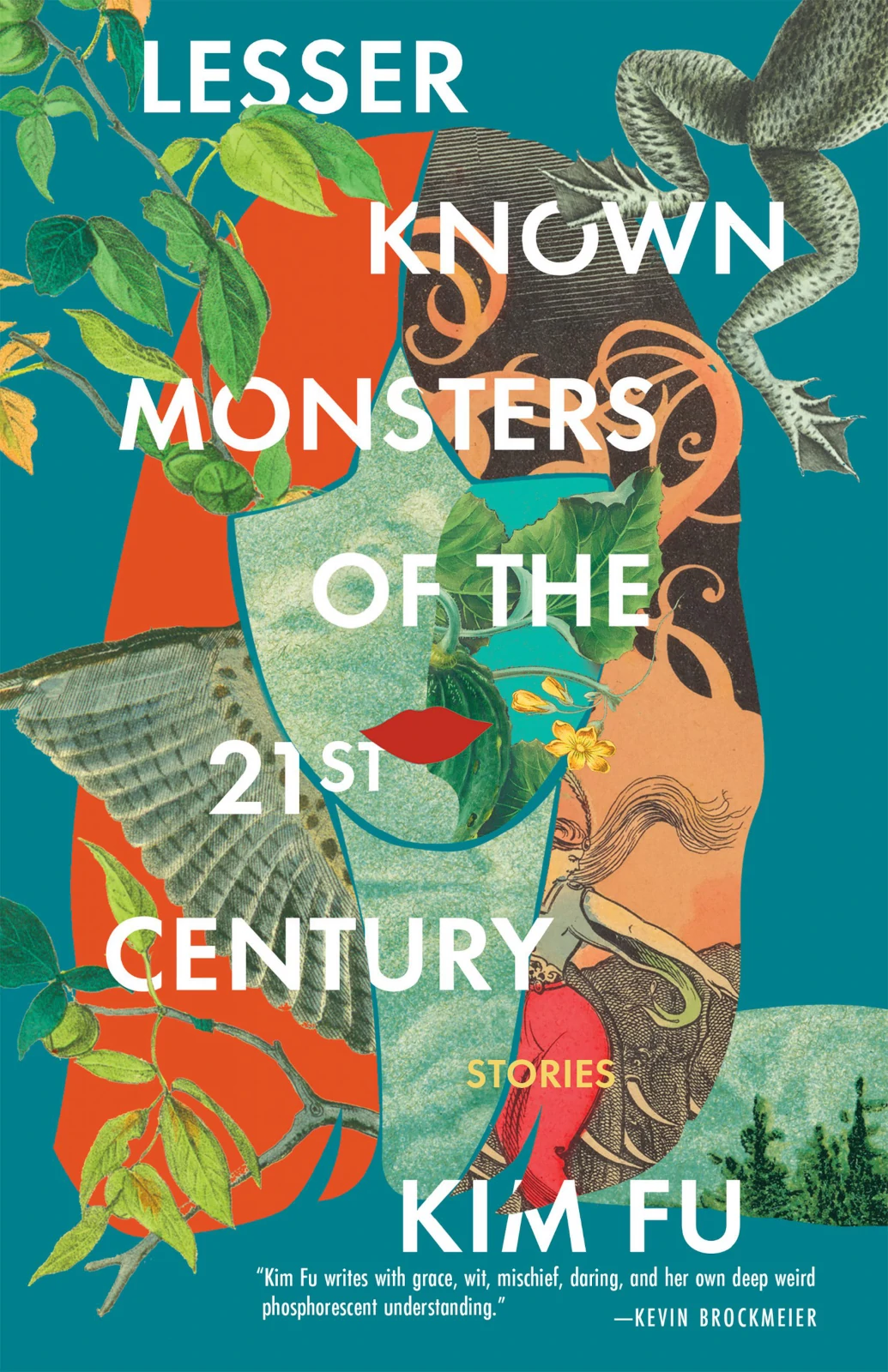
A Review of Lesser Known Monsters of the 21st Century by Kim Fu
Words By Manal Ahmed
Published February 1, 2022 by Tin House.
In Lesser Known Monsters of the 21st Century, Kim Fu creates eerie, unsettling worlds in all twelve of her deeply vivid short stories. This collection features a young girl who grows wings on her legs; a Sandman that envelopes one in wholly dark, uninterrupted sleep; a doll that belonged to a young, dead girl and now takes on a life of its own; and other human and nonhuman monsters. Nothing is impossible within these pages. And while the stories never stop being surreal and imaginative, at their core, they are stunning tales of the human condition. In one story, one of Fu’s young female characters says, “The realm of pretend had only just closed its doors to us, and light still leaked through around the edges.” In reading—experiencing—this book, I found myself submitting to this realm of pretend in a similarly child-like and awe-inspired manner, getting completely immersed in its many diverse offerings.
Lesser Known Monsters of the 21st Century is instantly arresting. In the first story, written entirely in dialogue, we are introduced to an operator who helps people experience lifelike simulations of events and occurrences they imagine and desire. But when the protagonist requests to see her dead mother and stroll around a garden with her, the operator, constrained by rules surrounding death in the “handbook,” says this is not possible. The conversation between the two is at once humorous and illuminating. Although it is set in a dystopian, futuristic time and location, it grapples with political ideas of the present with extreme nuance and subtlety. When the protagonist asks how simulations of murdering someone or being a “gun-slinger in an old Western” are okay but simulations where someone is momentarily brought back to life are not, I could not help but think about our own world, how we do not shy away from violence and its glorification but are terrified by the softer parts of ourselves, like grief. The book is populated with such examples harking back to our own reality, where Fu employs the fantastical to say something meaningful about the world we find ourselves in. Her writing here is crisp and evocative, and she relays powerful emotions through what is left unsaid, displaying masterful control over her craft.
What is sensational about Fu’s book is how easy it is to find yourself equally swept up in each story and the rich world that comes with it. In “Time Cubes,” time is everything, and yet, it is also a mere construct, elastic and malleable. In how she paces the story and in its ebbs and flows and momentum, Fu establishes an interesting relationship between form and content. By illuminating modern human loneliness, this story shines. One of the other stars of the collection is “#CLIMBINGNATION,” which, among other things, is a story about social media, optics, death, and human cruelty. Its ending is devastating and surprising, illustrating one of Fu’s consistent talents—how she is able to conclude each story with impossible power and impact. “Twenty Hours” is an unnerving tale about a couple who own a machine that allows them to kill each other but then also bring each other back; it is dazzling in its ability to shift from a dark, gruesome tone to one of surprising tenderness and domesticity. In “Bridezilla,” people resign themselves to the existence of a sea monster and it barely makes the news, which is not very different from our current attitude towards the climate crisis. The passivity of the bride’s fiancé seems to mimic our passivity towards global warming; Fu skillfully infuses these sharp and telling parallels throughout the collection.
Fu’s writing is incisive, lyrical, and inventive. I sped through this collection as if in a trance and felt dazed for hours after. In this spellbinding book, the real and unreal exist simultaneously and in complete unison. This dreamlike quality is threaded through each story, making this collection surreal and uninhibited while also incredibly human and fresh. Reading it is like waking up from an afternoon nap, disoriented yet completely satisfied.